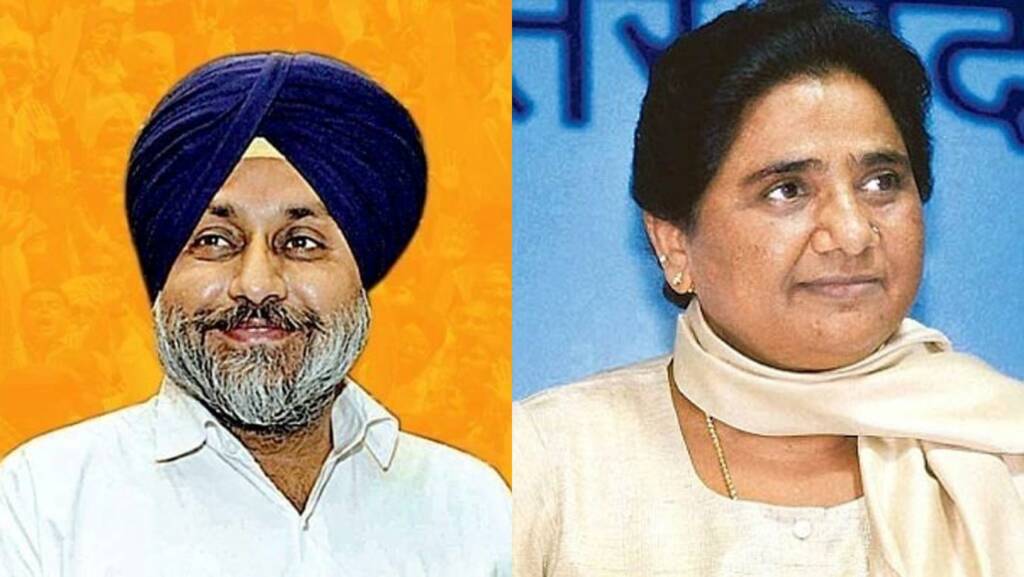Months after walking out of NDA, Shiromani Akali Dali has allied with Bahujan Samaj Party (BSP) for Hindu votes, especially of the Dalit community which constitutes more than 33 per cent (Hindu and Sikhs combined) of the state’s population.
The party has given BSP 20 seats – around the same that BJP used to get in the assembly elections – for the next assembly election. In the 117 seats in the Punjab legislative assembly, Dalits are especially dominant in around 23 seats in the Doaba region. In the last few years, the presence of BSP has declined considerably in the state but even then, it gets a good number of votes.
During its peak in Punjab, the Mayawati led party used to get around double-digit votes. And one must not forget that the Bahujan movement started from Punjab, led by Kanshi Ram – the predecessor and mentor of Mayawati.
However, an alliance with SAD might benefit Mayawati to surge in the state once just like the SP-BSP alliance in Uttar Pradesh, but the Badal family party is set to lose. After the results are declared, SAD would end up regretting the alliance just like SP.
For decades, especially since Punjab was created as a separate state in 1966, the politics of the state has revolved around Shiromani Akali Dal and Congress with the former being supported by Jat Sikhs. Jat Sikhs went for a more radical line in the 70s, 80s, and early 90s and supported the Khalistan movement but ultimately made peace with the state and rallied behind Akali Dal in 1997.
Prakash Singh Badal, who became the CM of Punjab in 1997, made SAD a family fiefdom from the political arm of Sikhism. In the 2002 assembly election, Hindus, and lower caste Sikhs, who felt alienated under Jat Sikh-dominated SAD, voted for the Congress but the party made Amarinder Singh, a Jat Sikh, CM.
The Jat Sikhs, who predominantly vote for Shiromani Akali Dal (SAD), enjoy a disproportionate share of political and economic power in the state. While the 33 per cent Dalit Sikhs have claim over just 3 per cent of the state’s total landholdings, the Jat Sikhs have claimed 80 per cent arable land with just 21 per cent of the population.
The Congress party often comes to power in the state with the support of Hindus and Dalits Sikhs, because both want to keep Akali Dal, supported by radical Sikhs, out of power. An often lesser talked facet of the Bhindranwale cult is the cruelties it carried out over Dalit Sikhs because they opposed their fundamentalist interpretation of the faith.
In the 2017 assembly election, the SAD-BJP alliance could only win 18 (SAD won 15 out of 94) seats and just 11.2 per cent of the vote. With this, it was pushed to third place in the state. Therefore, the SAD is nearly over in terms of its political prospects.
A party that survives on corruption, hooliganism, and misgovernance definitely has no chance to come to power at a time when India has witnessed the most transparent governance at the centre as well as in many states- by BJP as well as regional parties like BJD, TRS and others in the last few years. Mayawati led BSP would emerge as the real winner of this alliance and SAD would meet the fate of the Samajwadi Party.
